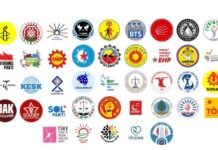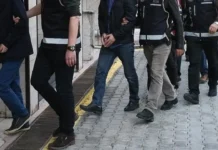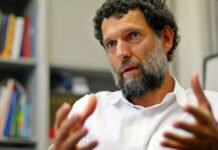Nearly 60,000 students in Turkey have enrolled in Kurdish elective courses in middle schools this year, a record high that reflects growing interest in mother tongue education despite persistent state-imposed barriers, Turkish Minute reported on Tuesday.
According to data shared by Hüdai Morsümbül, a Turkish language teacher who has advocated for Kurdish elective enrollment, a total of 59,372 students selected Kurdish courses for the 2025–26 academic year, 50,809 in the Kurmancî dialect and 8,563 in Zazakî. The figure marks a sharp increase from the previous annual average of about 25,000. Kurdish electives were first introduced in 2012 as part of a reform package linked to Turkey’s now-stalled bid for European Union membership.
Morsümbül talked about the importance of grassroots efforts for the growing numbers of students selecting Kurdish as an elective course. “With the support of NGOs, unions and political parties over the past five years, we’ve managed to raise this number to nearly 60,000,” he said.
“It’s still far below where it should be, but we see this as a positive development because it’s more than double the figures from previous years. We hope Kurdish education will become much more widespread in the coming period,” he said.
Structural barriers remain
Despite rising demand, Kurdish-language education in Turkey continues to face significant obstacles. The Ministry of Education allocated only 10 out of 20,000 new teaching positions to Kurdish in 2024, down from 50 the previous year. Many schools do not offer the course at all, or reportedly direct students toward other electives, citing a shortage of qualified teachers or administrative hurdles.
Education activists and civil society groups say these limitations reflect a lack of genuine political will to support Kurdish as a language of instruction. Critics argue the government’s half-measures suggest not a lack of interest, but rather a broader reluctance to acknowledge Kurdish linguistic rights.
Historical suppression
The Kurdish language was long suppressed in Turkey. Unlike Armenian, Greek and Jewish minorities who were granted limited cultural rights under the 1923 Treaty of Lausanne, Kurds, the country’s largest ethnic minority, received no official recognition. Kurdish was criminalized for decades, until restrictions began to ease in the early 2000s amid EU accession reforms.
Progress has been uneven. Many Kurdish-language media outlets, cultural centers and educational programs were closed following a 2016 coup attempt that sparked a sweeping crackdown on Kurdish civil society. Speaking Kurdish in public is still frequently viewed with suspicion and sometimes linked to separatist activity and affiliation with the outlawed Kurdistan Workers’ Party (PKK).
In December 2024, Human Rights Watch called on Turkish authorities to end prosecutions of Kurdish-language education and cultural initiatives, describing them as abuses of anti-terror laws and attacks on cultural identity.
Public support and lingering fears
A February 2025 survey by the Socio-Political Field Research Center found that 97.8 percent of Kurdish respondents supported mother tongue education for their children. Nearly half said they feared discrimination for speaking Kurdish. Many cited the lack of Kurdish instruction in schools as the most serious threat to the survival of the language among younger generations.
While the surge in enrollment in Kurdish electives is seen as a positive development, observers warn that without structural reforms and official recognition, these classes remain symbolic and insufficient to meet long-standing demands for comprehensive Kurdish-language education in public schools.
Political uncertainty ahead
In May the PKK, designated as a terrorist organization by Turkey and its Western allies, announced its decision to lay down arms and disband after more than 40 years of armed conflict. The move followed a call by jailed founder Abdullah Öcalan and was reportedly the result of quiet negotiations initiated by the government in late 2024.
The PKK has long demanded constitutional recognition of Kurdish identity, expanded language rights and political representation. Whether Ankara will respond to those demands in the wake of the group’s dissolution remains to be seen.















